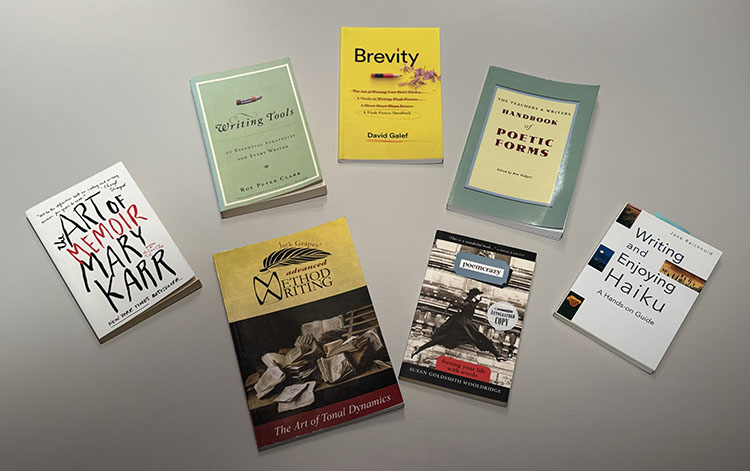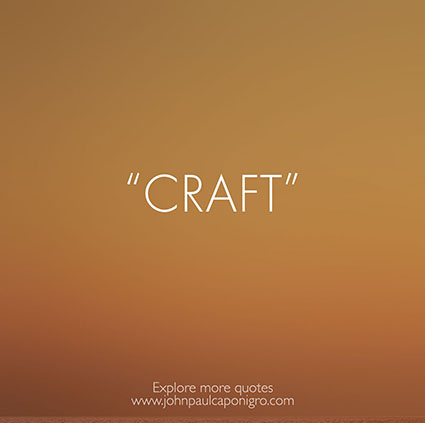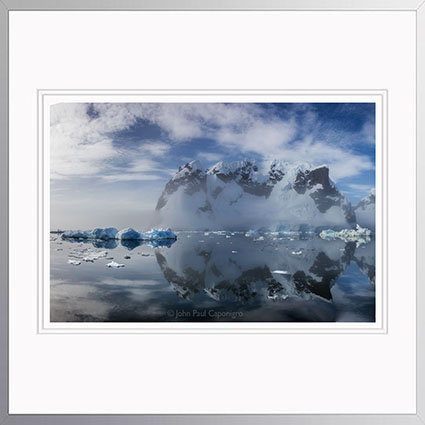10 Of Our Favorite Books On Writing

During our online conversation, An Open Book, Cig Harvey and I mentioned some of our favorite books on writing – and promised to make more recommendations. Here’s a quick list containing some of our favorite books on writing.
Cig’s Picks
These are soulful books on the writing life.
Art and Fear
David Bayles & Ted Orland
.
Art Objects
Jeanette Winterson
.
Bird by Bird
Annie Lamott
.
On Writing
Stephen King
.
John Paul’s Picks
These are simple, straightforward, practical craft books covering a variety of genres.
Writing Tools
Roy Peter Clark
Pounds of wisdom from the man who started the writing program at the Poynter Institute for Media Studies (a journalism think tank). Add Essential to the title.
Brevity
David Galef
Solid quick overviews of a surprising variety of short forms. It takes its title seriously.
Method Writing
Jacks Grapes
Mix method acting with writing, get method writing. A unique system that will help anyone become a more compelling and authentic writer.
The Art Of Memoir
Mary Karr
A classic in this genre on how to make a memoir personal, gripping, and unsentimental.
Poem Crazy
Susan Wooldridge Goldsmith
Pure playful joy, it’s a writing book that may be more about creativity.
Handbook Of Poetic Forms
Ron Padgett
Form is a noun and a verb. This book expands a poet’s options.
Writing And Enjoying Haiku
Jane Reichold
One of the clearest classics about the most widely practiced form of poetry.
Like photography, it’s really easy to do and really hard to do well.
For more see 9 Great Books On Haiku Poetry.
View my conversation with Natalie Goldberg here.
Listen to me read my published creative nonfiction and poetry here.



